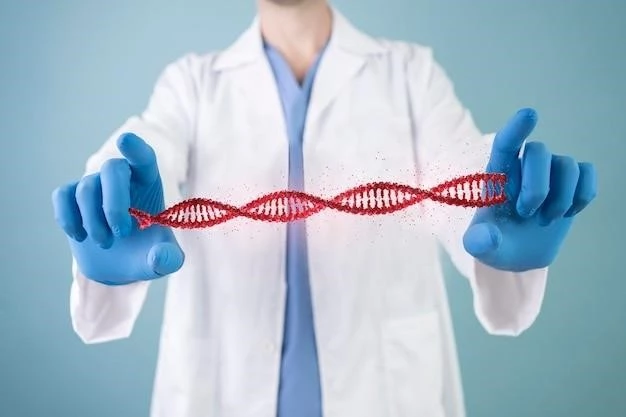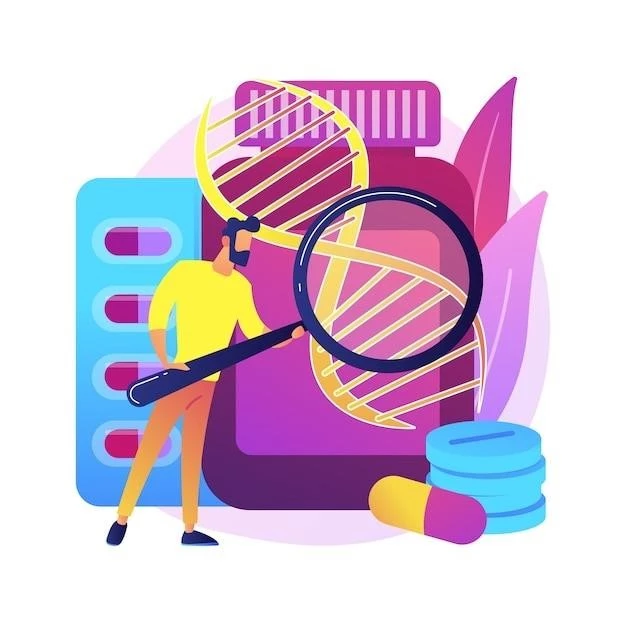Understanding Chromosome 10 Disorders
When exploring the causes of Monosomy 10q٫ genetic mutations play a crucial role․ Understanding the symptoms٫ diagnosis٫ and treatment options for Chromosome 10 Disorders is essential for managing the condition effectively․ Seek genetic counseling and stay informed about research advances to make informed decisions about your health․ Access support resources to connect with others facing Monosomy 10q․
Causes of Monosomy 10q
Monosomy 10q occurs when a person is missing part of chromosome 10 in each cell․ This chromosomal abnormality is typically caused by a deletion or breakage in the long arm of chromosome 10 during cell division․ Genetic factors and environmental influences may contribute to this condition․ Understanding the underlying genetic mechanisms and potential triggers for chromosomal abnormalities can provide valuable insights into the causes of Monosomy 10q․ Consult with a genetic counselor or healthcare professional for personalized information and guidance regarding this genetic disorder․
Symptoms of Chromosome 10 Disorders
Symptoms of Chromosome 10 Disorders can vary based on the specific genetic changes present․ Common symptoms may include developmental delays, intellectual disabilities, abnormalities in facial features, heart defects, and growth retardation․ It is important to note that individuals with Monosomy 10q may exhibit a range of symptoms, and the severity can also differ․ Regular medical evaluations and consultations with healthcare providers are crucial for monitoring and addressing any emerging symptoms․ Stay informed about the potential signs associated with Chromosome 10 Disorders to ensure timely intervention and appropriate management․
Diagnosis of Monosomy 10q
Diagnosing Monosomy 10q typically involves genetic testing, such as chromosomal microarray analysis or fluorescence in situ hybridization (FISH), to identify any missing genetic material on chromosome 10․ Medical professionals may also conduct physical examinations, assess symptoms, and review a patient’s medical history․ Early detection and accurate diagnosis of Monosomy 10q are essential for developing a comprehensive treatment plan and intervention strategies․ Collaborate closely with healthcare providers and genetic specialists to ensure a thorough evaluation and appropriate management of this chromosomal abnormality․

Treatment Options for Chromosome 10 Abnormalities
When considering treatment options for Chromosome 10 Abnormalities like Monosomy 10q, a multidisciplinary approach is often recommended․ Interventions may focus on managing specific symptoms or associated health conditions, such as developmental delays, heart defects, or growth issues․ Treatment plans may include early intervention services, educational support, physical therapy, speech therapy, and medical interventions tailored to individual needs․ Collaborate closely with healthcare professionals, therapists, and specialists to formulate a comprehensive treatment strategy that addresses the unique challenges presented by Chromosome 10 Disorders․ Stay informed about the latest advancements in medical care to optimize the treatment outcomes for individuals with Monosomy 10q․
Prognosis of Monosomy 10q
The prognosis of Monosomy 10q can vary significantly depending on the individual’s specific genetic makeup, the associated symptoms, and the availability of medical interventions․ It is essential to work closely with healthcare professionals to monitor and manage any health issues that may arise․ Early intervention, ongoing medical care, and therapeutic support can greatly impact the overall prognosis and quality of life for individuals with Chromosome 10 Disorders․ Stay proactive in seeking appropriate medical attention, adhering to treatment plans, and accessing necessary support services to optimize outcomes and promote well-being for those affected by Monosomy 10q;
Genetic Counseling for Chromosome 10 Conditions
Genetic counseling is crucial for individuals and families navigating Chromosome 10 Conditions such as Monosomy 10q․ This specialized service provides information about the genetic factors contributing to the condition, inheritance patterns, and the implications for family members․ Genetic counselors can offer support, guidance, and resources to help individuals make informed decisions about their health and reproductive choices․ By participating in genetic counseling sessions, individuals can gain a deeper understanding of their condition, explore available testing options, and receive personalized recommendations for managing Chromosome 10 Disorders; Empower yourself by seeking the expertise of genetic counselors to navigate the complexities of genetic conditions effectively․
Research Advances in Chromosome 10 Disorders
Staying informed about the latest research advances in Chromosome 10 Disorders is crucial for individuals, families, and healthcare providers․ Ongoing studies and scientific breakthroughs are continuously shaping our understanding of Monosomy 10q and other related conditions․ By following developments in genetic research, clinical trials, and treatment innovations, you can gain insights into potential new therapies, diagnostic techniques, and management strategies for Chromosome 10 Disorders․ Stay connected with reputable medical sources, research institutions, and advocacy organizations to access updated information on emerging research findings․ Engage with healthcare professionals to explore how cutting-edge research may impact the care and treatment options available for individuals with Monosomy 10q․
Support Resources for Individuals with Monosomy 10q
Accessing support resources is essential for individuals and families affected by Monosomy 10q․ Support groups, online communities, and nonprofit organizations dedicated to Chromosome 10 Disorders can provide valuable assistance, information, and emotional support․ Connecting with others facing similar challenges can offer a sense of community, understanding, and solidarity․ Additionally, seeking guidance from healthcare professionals, therapists, and genetic counselors can help navigate the complexities of the condition and access appropriate care․ Explore support services, educational materials, and advocacy resources to empower yourself and your loved ones on the journey with Monosomy 10q․ Remember, you are not alone, and support is available to help you every step of the way․
